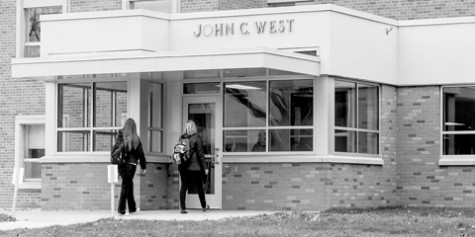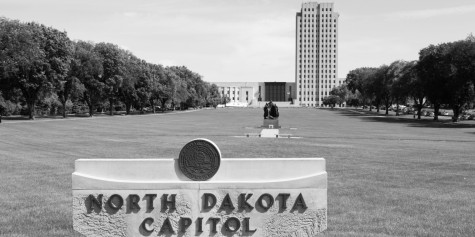Earthcycle brings biking to campus
If you have not dusted off that bike yet, it’s time to do so. Summer is over and fall seems to already be entering its last hurrah before the bone-chilling breezes waft into Grand Forks. Why not spend a few extra hours outside while you still can for both the betterment of your health and the environment. Earthcycle (pronounced Earth-Sickle) is nearing the close of its month long competition (Sept. 8 to Oct. 5) at UND.
Although the main focus of Earthcycle transportation is biking, you can also participate by way of walking, rollerblading, skateboarding, or if snows by October 5th, cross-country skiing. Any type of transportation that is muscle and not gas powered works.
UND Professor and advocate for the Earthcycle, Jaakko Putkonen, sums up the best reason for all to participate in the event.
“In addition to making you feel good right from the get go in the morning, the main idea behind the event is to make the world a little greener,” he said. “Burn a little less gas, ease the congestion, and improve your own health while doing it.”
On the website where each participant logs their hours, a tracker containing total monthly and lifetime mileage and pounds of CO2 saved is updated with each ride entry.
According to Livestrong.com, the average rider bicycling 10 to 11.9 mph (regarded as a “light effort”) burns about 47 calories per mile if you weigh 190 pounds, about 38 calories per mile if you’re 155 pounds, or about 32 calories per mile if you’re 130 pounds. Grand Forks is a fairly small town, so most people don’t have far to go to get to their classes, but over a few weeks a mile here and there will surely add up and be beneficial to yourself and the atmosphere.
The extra exercise you will get from riding a bike to and from work, school, or activities would benefit your physical and mental health. If you are feeling kind of crummy from the fall colds circulating around campus or if it is nice outside and you are staring out the window instead of working on petrology homework, why not take a break and go for a bike ride. It could easily clear chest congestion, get blood flowing to your lungs and heart, and wake you up, so you can return to your homework conscious and with fresh motivation to keep on keepin’ on with those tedious microscope lab details.
The act of deforestation and combustion of fossil fuels has increased the amount of carbon dioxide (the highest concentrated greenhouse gas) within Earth’s atmosphere, and is the main greenhouse gas emitted by human activity. Excess amounts of this gas in the atmosphere can lead to health problems brought on by breathing in smog and environmental damage to plants and structures with acid rain. By reducing your use of transportation via car, you will be emitting less hazardous gases into the air as well as saving on the cost of gas money.
You can still register to track bike miles ridden as a solo member or as part of a team and competition. Currently, the top three competing department teams involved in the UND Earthcycle 2014 competition are Atmospheric Sciences (563 miles), Geology & Geological Sciences (622 miles) and Aerospace Studies (521 miles).
Even though the campus wide competition may be nearly over, there are still many reasons to participate in this international movement year round. All you need to do is register with greenlightride.com and log your bike rides with the web site. If you would still like to join the competition, contact Jolene Marsh or Jaakko Putkonen at the Harold Hamm School of Geology and Geologic Engineering.
Maggie Upton is a staff writer for The Dakota Student. She can be reached at [email protected].










